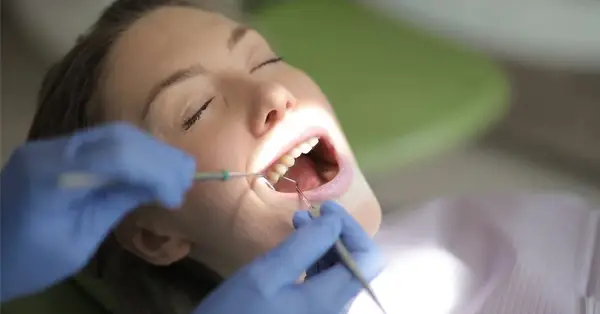Top Questions to Ask About Sedation Dentistry in Washington
Feeling anxious about an upcoming dental procedure? You’re not alone. Sedation dentistry has become an increasingly popular solution for patients who want a stress-free, pain-free dental experience. Whether you're undergoing a routine extraction or a more complex procedure like dental implants or bone grafting, sedation options can make all the difference.
In our previous blog, we discussed the essential tips for a speedy recovery from sedation dentistry. In this blog, we will address the different concerns that patients might have about dental sedation and provide solutions for them.
5 Questions to Ask Your Oral Surgeon Before Dental Sedation
But before you settle into the dentist's chair, it's essential to ask the right questions. Understanding how sedation works, what to expect, and how it fits into your treatment plan can ease your nerves and help you feel more in control. Here are five top questions to ask your provider when considering sedation dentistry in Washington—plus answers that will help you walk in with confidence.
-
1. What Types of Sedation Are Available and Which One Is Right for Me?
There are multiple kinds of sedation used in dentistry, each modified to a specific degree of anxiety and process intricacy. For mild cases of dental anxiety, nitrous oxide, also known as laughing gas, is often administered through a mask, providing a gentle calming effect. For patients undergoing lengthy or invasive procedures or those with severe dental fear, IV sedation may be recommended. This form allows for a more controlled and deeper level of relaxation. Your dentist will assist you in choosing the best sedation method depending on how comfortable you are, your medical history, and the treatment you're undergoing.
-
2. Will I Be Fully Asleep During the Procedure?
Several individuals believe that sedation dentistry implies being completely unconscious, although this is not usually the case. Most forms of sedation used in dental offices are designed to keep you awake yet deeply relaxed. You might get sleepy or recall little of the process, but you will remain conscious and able to react to verbal prompts. Only general anesthesia, which renders you completely unconscious, is used in specific cases and often in hospital settings. Understanding this distinction can help reduce any fear you may have about “going under” and prepare you mentally for the experience.
-
3. Is It Safe to Sedate Patients With Health Conditions?
Sedation dentistry is generally safe for most individuals, but special considerations are needed for patients with pre-existing health conditions such as heart disease, diabetes, or respiratory issues like sleep apnea. A detailed medical evaluation is typically performed before any sedative is administered to ensure safety. This becomes even more crucial for patients preparing for complex treatments like dental implants in Washington, where sedation may be used for an extended duration during the procedure.
-
4. How Should I Prepare for a Sedation Appointment?
Preparing for a sedation appointment will depend on the method being used, but there are common steps that your provider will likely advise. If you're having oral or IV sedation, you might want to avoid food for a short period before your visit to lessen the possibility of nausea. You'll also need to arrange for someone to drive you to and from the clinic, as the effects of sedation can linger for several hours. By implementing your dentist's pre-sedation recommendations, you may help ensure that the consultation runs smoothly and safely.
-
5. Can Sedation Be Used for Procedures Like Bone Grafting?
Yes, sedation is not only safe but often recommended for longer and more intensive procedures like bone grafting in Washington. These treatments can be uncomfortable or time-consuming, and sedation helps keep patients calm and still, which is important for surgical precision. IV sedation is commonly used in these scenarios because it offers a deeper level of relaxation without the need for general anesthesia. It also allows the oral surgeon to work efficiently while minimizing the physical and emotional stress experienced by the patient.
Conclusion
Dental anxiety is real—but so are the solutions. Asking the right questions about sedation puts you in the driver’s seat and helps you partner more effectively with your care team. Whether you're in for a simple cleaning or a more involved procedure, knowing what to expect can transform your experience from stressful to serene.
If you're considering sedation for an upcoming appointment, don’t hesitate to ask your oral surgeon every question on your mind. A good provider will welcome your curiosity and ensure you feel completely informed and at ease before, during, and after your treatment. Call now at (202) 610 0600!






4.9 Stars
based on 134 reviews
5 Stars
based on 11 reviews
5 Stars
based on 11 ratings